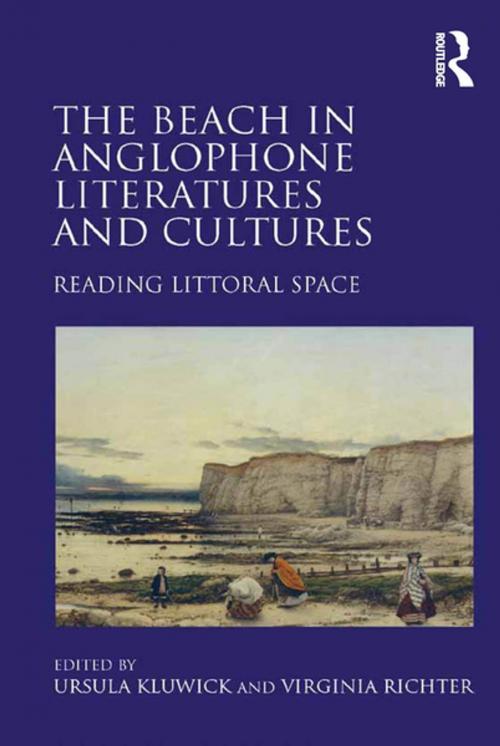The Beach in Anglophone Literatures and Cultures
Reading Littoral Space
Fiction & Literature, Literary Theory & Criticism| Author: | Ursula Kluwick, Virginia Richter | ISBN: | 9781317040538 |
| Publisher: | Taylor and Francis | Publication: | March 9, 2016 |
| Imprint: | Routledge | Language: | English |
| Author: | Ursula Kluwick, Virginia Richter |
| ISBN: | 9781317040538 |
| Publisher: | Taylor and Francis |
| Publication: | March 9, 2016 |
| Imprint: | Routledge |
| Language: | English |
From early colonial encounters to the ecological disasters of the twenty-first century, the performativity of contact has been a crucial element in the political significance of the beach. Conceptualising the beach as a creative trope and as a socio-cultural site, as well as an aesthetically productive topography, this collection examines its multiplicity of meanings and functions as a natural environment engendering both desire and fear in the human imagination from the Victorian period to the present. The contributors examine literature, film, and art, in addition to moments of encounter and environmental crisis, to highlight the beach as a social space inspiring particular codes of behaviour and specific discourses, as a geographical frontier between land and water, as an historical site of contact and conflict, and as a vacationscape promising regeneration and withdrawal from everyday life. The diversity of the beach is reflected in the geographical range, with essays on locales and texts from Britain, Ireland, the Caribbean, South Africa, the United States, Polynesia, and New Zealand. Focusing on the changed function of the beach as a result of processes of industrialisation and the rise of a modern leisure and health culture, this interdisciplinary volume theorises the beach as a demarcater of the precarious boundary between land and the sea, as well as between nature and culture.
From early colonial encounters to the ecological disasters of the twenty-first century, the performativity of contact has been a crucial element in the political significance of the beach. Conceptualising the beach as a creative trope and as a socio-cultural site, as well as an aesthetically productive topography, this collection examines its multiplicity of meanings and functions as a natural environment engendering both desire and fear in the human imagination from the Victorian period to the present. The contributors examine literature, film, and art, in addition to moments of encounter and environmental crisis, to highlight the beach as a social space inspiring particular codes of behaviour and specific discourses, as a geographical frontier between land and water, as an historical site of contact and conflict, and as a vacationscape promising regeneration and withdrawal from everyday life. The diversity of the beach is reflected in the geographical range, with essays on locales and texts from Britain, Ireland, the Caribbean, South Africa, the United States, Polynesia, and New Zealand. Focusing on the changed function of the beach as a result of processes of industrialisation and the rise of a modern leisure and health culture, this interdisciplinary volume theorises the beach as a demarcater of the precarious boundary between land and the sea, as well as between nature and culture.















